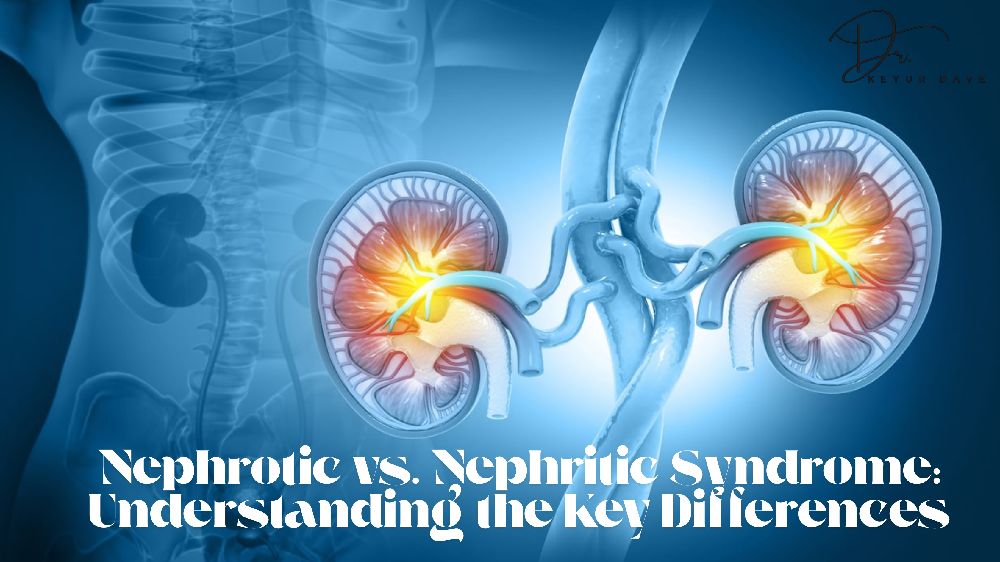 Kidney diseases are often complex, but among the most commonly confused conditions are nephrotic and nephritic syndromes. Though both involve the glomeruli—the filtering units of the kidney—their presentations, causes, and management differ significantly. Understanding these distinctions is essential for accurate diagnosis and treatment.
Kidney diseases are often complex, but among the most commonly confused conditions are nephrotic and nephritic syndromes. Though both involve the glomeruli—the filtering units of the kidney—their presentations, causes, and management differ significantly. Understanding these distinctions is essential for accurate diagnosis and treatment.
🔍 What Is Nephrotic Syndrome?
Nephrotic syndrome is a clinical condition characterized by:
-
Massive proteinuria (>3.5 g/day)
-
Hypoalbuminemia
-
Edema (often facial and peripheral)
-
Hyperlipidemia
It results from increased glomerular permeability, allowing proteins (especially albumin) to leak into the urine.
Common causes:
-
Minimal change disease (children)
-
Focal segmental glomerulosclerosis (FSGS)
-
Membranous nephropathy
-
Diabetes mellitus (secondary cause)
-
Lupus nephritis
🔍 What Is Nephritic Syndrome?
Nephritic syndrome is an inflammatory condition of the glomeruli, characterized by:
-
Hematuria (blood in the urine)
-
Oliguria (low urine output)
-
Hypertension
-
Mild to moderate proteinuria
-
Azotemia (increased BUN and creatinine)
It often stems from immune-mediated damage, leading to inflammation and bleeding into the urine.
Common causes:
-
Post-streptococcal glomerulonephritis
-
IgA nephropathy (Berger’s disease)
-
Lupus nephritis
-
Goodpasture’s syndrome
-
Rapidly progressive glomerulonephritis (RPGN)
🧪 Key Differences at a Glance
| Feature | Nephrotic Syndrome | Nephritic Syndrome |
|---|---|---|
| Main urine abnormality | Heavy proteinuria | Hematuria with RBC casts |
| Edema | Prominent | Mild to moderate |
| Blood pressure | Often normal | Elevated |
| Urine output | Normal or decreased | Decreased (oliguria) |
| Lab findings | Hypoalbuminemia, hyperlipidemia | Elevated creatinine, hematuria |
| Pathophysiology | Non-inflammatory glomerular damage | Inflammatory glomerular injury |
💊 Treatment Overview
Nephrotic Syndrome:
-
Corticosteroids (e.g., in minimal change disease)
-
ACE inhibitors (reduce proteinuria)
-
Diuretics (for edema)
-
Statins (for hyperlipidemia)
-
Treat underlying cause
Nephritic Syndrome:
-
Control blood pressure (ACE inhibitors)
-
Immunosuppressive therapy (if autoimmune cause)
-
Plasmapheresis (e.g., Goodpasture’s)
-
Antibiotics (if post-infectious)
-
Dialysis if severe
🧠 Conclusion
While nephrotic and nephritic syndromes both affect the kidneys’ filtering system, their symptoms, lab results, and management strategies differ significantly. Quick and accurate differentiation is essential to start the right treatment and prevent long-term kidney damage.

.png)